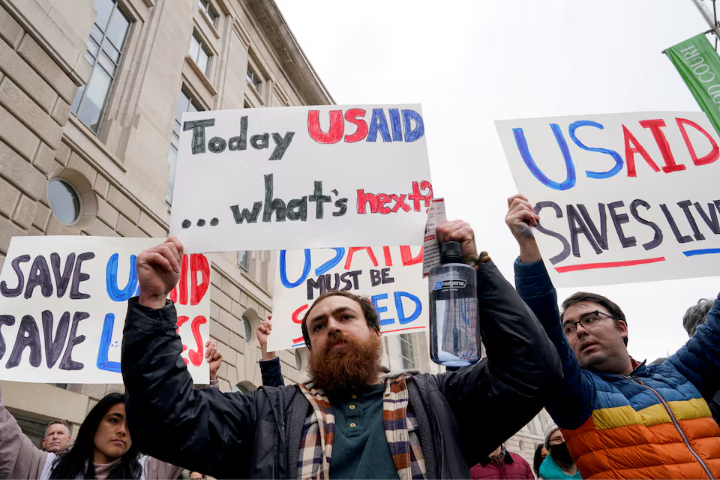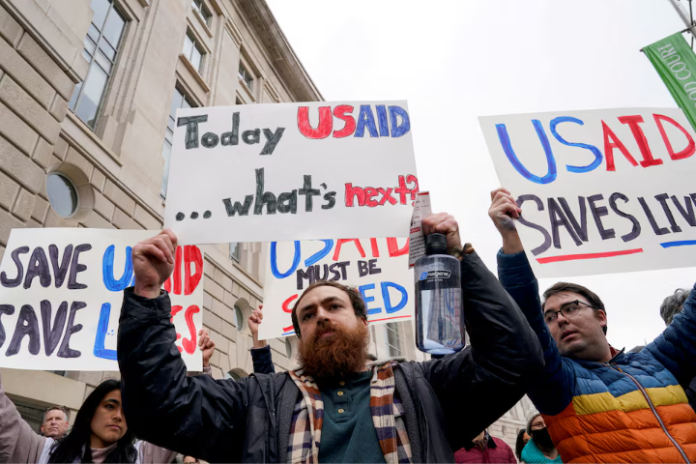A sweeping freeze on U.S. foreign aid has triggered a crisis worldwide, leaving vital humanitarian programs in limbo. With lifesaving medical treatments, food supplies, and disaster relief efforts stalled, millions of vulnerable people in developing countries face immediate threats to their well-being.
Nearly three weeks into the 90-day freeze, aid organizations report mass confusion over which programs can continue under limited waivers granted by the U.S. State Department. Meanwhile, communication breakdowns with U.S. officials—many of whom have been fired or barred from speaking—have worsened the situation, forcing NGOs to shut down essential services.
Haiti, Africa, and Asia Struggle as Aid Stalls
The suspension of funding has left lifesaving medicines and supplies sitting unused:
Haiti: Clinics treating HIV patients remain closed, even though their programs were supposedly exempt from the freeze. Without medication, thousands of pregnant women risk passing the virus to their babies.
Africa: Anti-malaria efforts in Ghana and Kenya are on hold because U.S.-funded insecticide and mosquito nets remain locked in warehouses. The delay threatens millions, particularly children under five, who are at the highest risk of malaria-related deaths.
Myanmar: A severe food crisis is unfolding, with nearly two million people on the brink of famine. The U.S. is the country’s largest aid donor, but relief efforts have come to a standstill due to bureaucratic paralysis.
The situation is dire in refugee camps as well. In Bangladesh, U.S.-funded aid to Rohingya refugees has been interrupted, affecting over a million displaced individuals. In Thailand, refugee camps along the Myanmar border were forced to shut down medical facilities, leaving pregnant women and critically ill patients without care.
Confusion and Fear Over Aid Waivers
The Trump administration has allowed waivers for “lifesaving humanitarian assistance” such as medical services, food, and shelter. However, aid workers remain unsure which programs qualify. Without clear guidance from the U.S., many organizations have erred on the side of caution, suspending operations to avoid financial losses.
One aid worker described the uncertainty: “We asked for clarification, and the response was, ‘No more guidance is forthcoming.’ That leaves us making impossible decisions about which programs to save—when we don’t have the money to fund them ourselves.”
USAID in Crisis: Mass Firings and Policy Shifts
The crisis has deepened due to internal turmoil at the United States Agency for International Development (USAID), the main body responsible for delivering U.S. humanitarian aid. President Trump’s administration, spearheaded by billionaire Elon Musk, has targeted USAID for dramatic downsizing, labeling it a “criminal organization.”
Hundreds of USAID staff members were abruptly fired, leaving the agency in disarray. Former employees report that they were locked out of offices without notice and denied access to their work files. “It happened so fast—I couldn’t even save my contacts or emails. We were just bulldozed over,” said one former USAID expert.
‘People Are Going to Die’

With funding frozen and aid programs shutting down, the stakes couldn’t be higher. Malaria prevention campaigns in Africa have only a narrow window before the rainy season begins, which could unleash a surge in mosquito-borne infections.
Meanwhile, in Haiti, PEPFAR—the world’s largest initiative to combat HIV—has halted operations due to a lack of written approval to resume. Aid workers warn that without immediate intervention, thousands of AIDS patients could be left without medication.
Medical experts and humanitarian workers are sounding the alarm: “If nothing changes soon, people are going to die,” said a director at a medical relief organization.
Final Thoughts
The Trump administration’s freeze on foreign aid has not only thrown global relief efforts into turmoil but has also raised questions about the future of U.S. humanitarian leadership. As millions face hunger, disease, and displacement, international organizations are left scrambling to find alternative funding sources.



